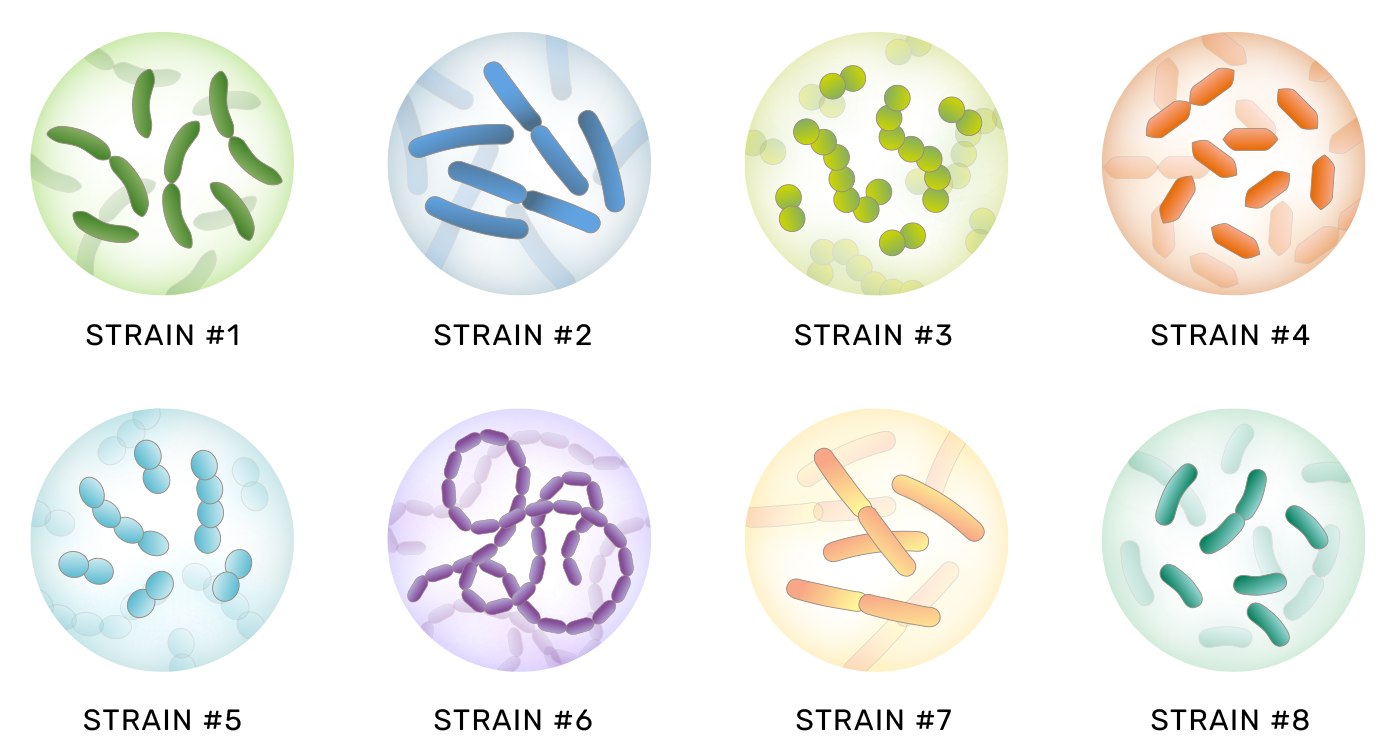VE303

VE303 for Recurrent
C. difficile Infection (rCDI)
VE303, is a wholly-owned, orally-administered defined bacterial consortium candidate consisting of eight strains of live commensal bacteria for the prevention of rCDI.

Role of gut dysbiosis in rCDI
Antibiotics are paradoxically both the first line treatment and a major risk factor for C. difficile infection. Commonly used antibiotics such as cephalosporins, fluoroquinolones, and clindamycin disrupt the endogenous microbiome, which impairs colonization resistance, allowing C. difficile to overgrow and cause disease. Once the gut flora has been destroyed, antibiotics are ineffective at managing recurrences.
Our therapeutic approach with VE303
In contrast to fecal microbiota therapies, which are prepared from human stool, carry the risk of pathogen and food allergen transfer and are administered via enema or after a bowel lavage, VE303 consists of a standardized and convenient oral pharmaceutical composition manufactured from pure clonal cell banks, with consistent quality attributes.
The strains in VE303 have been selected for their ability to carry out multiple desired functions to prevent CDI recurrence, including:
- competition for growth substrates used by C. difficile and
- production of secondary bile acids, which are involved in C. difficile suppression, and short chain fatty acids (SCFAs), which are involved in gut barrier integrity and reducing inflammatory responses in the gut
Phase 2 clinical trial highlights
In the Phase 2 CONSORTiUM Study, which enrolled subjects with high risk for rCDI, administration of VE303 was associated with a CDI recurrence rate of 13.8% compared with 45.5% for placebo. This 31.7% absolute risk reduction (30.5% after adjusting for stratification) in the rate of recurrence represents a greater than 80% reduction in the odds of a recurrence.
VE303 was also determined to be generally well-tolerated; none of the serious treatment-emergent adverse events was determined to be related to the study drug.
A potential first-in-class Live Biotherapeutic Product (LBP) candidate for rCDI prevention
We believe that VE303’s potentially best-in-disease activity, convenient oral administration without bowel lavage, and defined composition that avoids the risk of pathogen and food allergen transfer, strongly differentiates it from existing approaches to rCDI prevention.
If the ongoing pivotal study is successful, VE303 could become the first live biotherapeutic product (LBP) to be approved in any indication.
A Live Biotherapeutic Product (LBP) is a biological product that:
1) contains live organisms, such as bacteria; 2) is applicable to the prevention, treatment, or cure of a disease or condition of human beings; and 3) is not a vaccine.
Clinical Trial
Phase 3 Study for Prevention of Recurrent CDI
Based on our promising Phase 2 results, we have initiated RESTORATiVE303, a randomized, double-blind, placebo-controlled, multinational, pivotal Phase 3 clinical trial. VE303 is being developed with the support of the U.S. Biomedical Advanced Research and Development Authority (BARDA). The FDA has granted VE303 Orphan Drug designation for the prevention of rCDI in individuals with prior rCDI. The FDA has also granted VE303 Fast Track designation for the prevention of rCDI.